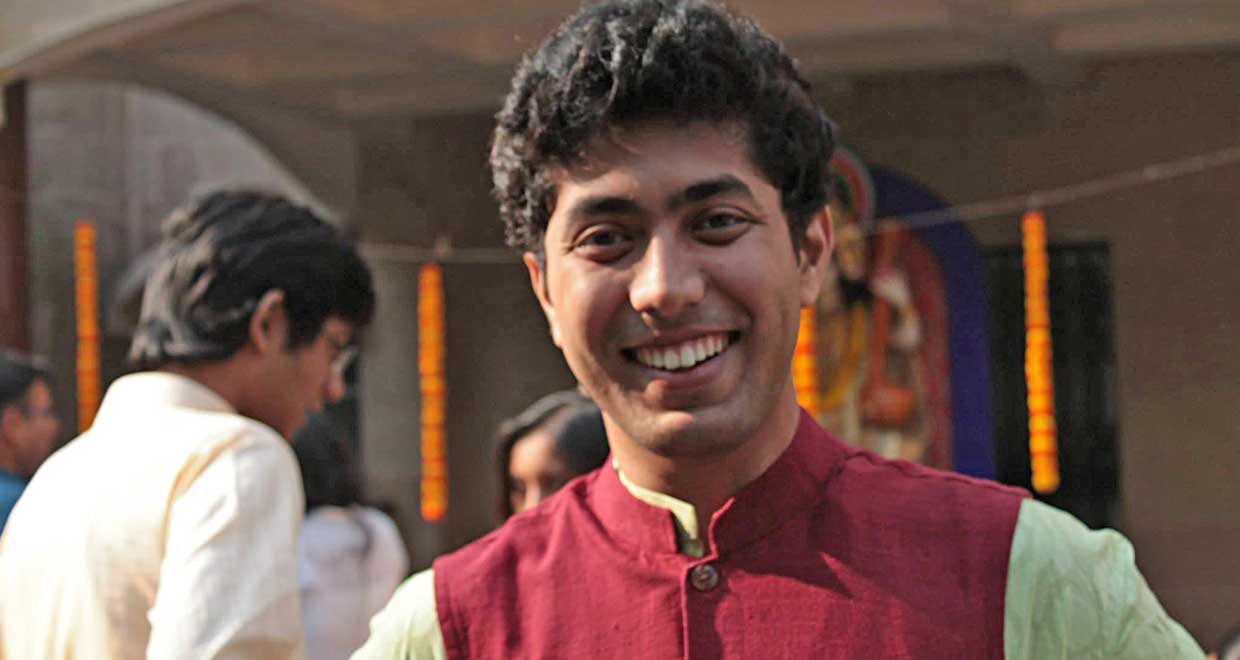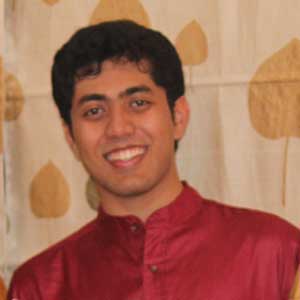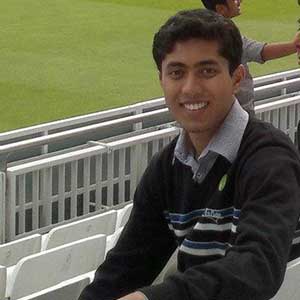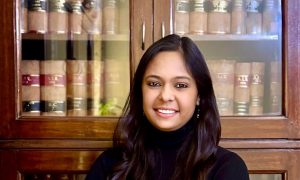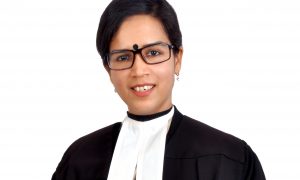Aniket Ghosh is a recent graduate (2015 batch) from NUJS, Kolkata, In his five years he explored a plethora of opportunities. He pursued a course on “Interpretation of Fiscal Statutes” by Mr. Badrinarayan, Partner at Lakshmi Kumaran & Sreedharan (L&S), he also worked as a Teaching Assistant to Prof. Saurabh Bhattacharjee and interned at various law firms including Ernst & Young, Mumbai.
He has bagged a job at L&S after getting to work with Mr. Lakshmikumaran directly.
In this interview we talk about:
- His journey through WBNUJS and his gainful takeaways from these five years.
- Pursuing “Interpretation of Fiscal Statutes” by Mr. Badrinaravan, Partner at Lakshmi Kumaran & Sreedharan (L&S).
- Being a Teaching Assistant to Prof. Saurabh Bhattacharjee.
- Interning at Ernst & Young, Mumbai.
Tell us about your life before you joined law school. What inclined your decision to study law?
I grew up in a very positive atmosphere as my parents have always been very encouraging and supportive of all my endeavours and have never pressured me regarding anything. My father was a Wing Commander in the Indian Air Force and I have grown up all over the country from Jodhpur, Rajasthan in the West to Jorhat, Assam, in the East, and from Bangalore in the South to Delhi and Chandigarh in the North, not to mention the many road trips and excursions that we took to beautiful, untouched, out of the way places in Arunachal Pradesh, Nagaland and Manipur, and in the isolated desert sands of Rajasthan.
This, I have always felt, gave me a wealth of exposure and knowledge that many of my peers could scarcely imagine.
I was inspired to study law thanks to my maternal uncle, Mr Sujit Ghosh, who incidentally is a 1995-batch NLS graduate. Seeing him work and the critical problems faced by clients piqued my interest towards law.
Studying in WBNUJS must have given you an opening to plethora of opportunities. How has been you experience through the law school timeline so far?
Indeed, NUJS through its curricular, co-curricular and extra-curricular activities provides innumerable opportunities to its students to develop a wide range of skills like general academic development, critical thinking and honing of drafting and speaking abilities. Most importantly, the many competitive and intellectual forums that it provided us, by way of Moot Courts, Parliamentary Debates etc, taught us to ‘think on our feet’, which I am sure, will stand us in good stead in the future. It has been a very enjoyable experience and I believed that I have learned immensely during my time at NUJS, both about legal matters and about life in general
How would you advice law students in freshman and sophomore years to proceed?
I would advise them to take all the opportunities provided by the law schools very seriously, curricular, co-curricular and extra-curricular etc. Not many people get the wide range of opportunities that we get at national law schools and this fact must be borne in mind from the first year to the fifth.
Do you think in recent times legal academia has been distancing itself from the practical aspect of law?
In my opinion, the degree to which any academic work is distanced from practical aspects is dependent entirely on the context in which it is written. Most of the materials, by academicians, which we studied at NUJS, were written in a specific context which more often than not, discussed commercial, societal and practical ramifications of different legal issues rather than just dry legal rules alone.
As regards, day-to-day knowledge of laws, rules, drafting etc. there is only so much that can be taught and learnt at law schools, since hands-on knowledge is best learnt and assimilated once one actually enters the profession.
You have also pursued “Interpretation of Fiscal Statutes” by Mr. Badrinarayan Partner Lakshmi Kumaran & Sreedharan (L&S). Tell us about your course.
The Interpretation of Fiscal Statutes course was an intriguing course indeed. We learnt about a variety of issues in a very small period of time. Mr. Badrinarayan was an extremely supportive and engaging teacher. He would often discuss current legal issues from various pending cases etc. and would test our critical thinking abilities by requiring us to provide our own opinions on the same. This added a whole new dimension to the teaching and, frankly, made it thoroughly enjoyable.
You have also been a Teaching Assistant for Professor Saurabh Bhattacharjee in the Legal Method-I Course (2013 & 2014). Can you tell our readers about your experience?
Being Teaching Assistant required me to assist Professor Bhattacharjee in providing guidance to the First Year students, give them feedback on their work, grade their papers etc. I tried my level best to extract and highlight the core issues from the various problems given to them as case studies, whilst also explaining to them how to do the same, on their own.
It was a learning experience for me as much as for the first year students themselves, who would make some novel points which may have not occurred to me initially. Further, it gave me a wonderful insight into the pressures, and responsibilities that a teacher faces which I feel I will keep in mind, should I ever change my line of work and seek to become a teacher, in the future.
What would be your inclusions to make an exemplary CV?
I feel an exemplary CV would be one that highlights the all-round character of the individual concerned. It should seek to bring out a balance of all his complementary skill-sets be it in areas of academics, co-circular or extra-curricular activities, etc.
Playing the role of the protagonist in the University Annual Theatre Production (2012) titled “God” by Woody Allen must have been a moment of pride. Tell us about your experience.
Taking part in the University Theatre Production was a very memorable experience. I participated in the auditions and the subsequent play with the intent to enjoy myself. Admittedly, there were some scenes of the play, which required a bit of hard work from all of us, acting-wise, but with the encouragement of my friends and co-participants it became a thoroughly enjoyable experience.
How did you garner interest in Tax? Tax being a dry subject, what would be your tips to law students?
I garnered an interest in tax mainly because of my internship with Mr. Parasaran. I got a chance to work on numerous tax matters and issues with him. Researching, analysing, and discussing them with sir increased my liking for the subject.
Every subject has some dry area or the other. Tax is no different. Unfortunately, the areas that we are taught in law schools at best give an overview of tax. The more practical issues and nuanced matters are hardly taught. Further, very few people intern in dedicated tax teams of firms. Moreover, even if they do, they intern for four weeks at most, of which unlike other areas of law it takes three weeks to grasp the basics of the subject. Due to these reasons many people tend to have a mental block regarding tax laws and already start on a negative footing with the subject.
I myself used to feel this way before interning with Mr. Parasaran. Ultimately it comes down to your ability to avoid these mistakes and give the subject a chance.
How was your work experience of working at Ernst and Young. Mumbai?
My time at EY Bombay was a new experience because for the first time, I was working in a multi-disciplinary work environment with both lawyers and chartered accountants. It gave me a perfect insight into the nascent stages of any tax dispute, something that is not usually seen in a law firm or a under a counsel. I learnt how claims were negotiated with the Department at the initial stages and saw how they escalate into full blown litigations.
How was it to intern under Mr. Mohan Parasaran?
I worked under Mr. Parasaran whilst he was still Additional Solicitor General of India in the Supreme Court in 2012. This internship, I must admit, was the most exciting one that I have done, as I interned at a time when the ASG’s office had innumerable high profile matters in the Supreme Court. To name a few, Mayawati’s DA case, the Enrica Lexcie Matter, the Presidential Reference on Auctioning of Public Resources etc. I got an opportunity to draft, research and discuss on these matters with sir on the various legal issues involved, having significant ramifications like the Armed Forces Special Powers Act case. This was also the internship that got me interested in tax laws as Mr. Parasaran handled many tax matters in the Supreme Court as well. One of the more famous ones was the Vodafone dispute.
How did you bag your job at L&S? Please walk us through your appointment procedure. What is your work profile like at L&S?
I interned with L&S for about one and half months during the summer break of 2014. I worked on a variety of matters with a variety of teams on the litigation side. There were a couple of matters where I got the chance to work with Mr. Lakshmikumaran directly. Ultimately at the end of the internship, I was informed by the HR, that they would like to hire me. I did not have to give any interview.
As regards my job profile, I am just starting and we are going through our training period. Therefore I am not in a position to comment on that, at this moment. All, I can say is that I will be doing litigation work before various forums.
What do you think should be the reasonable standards of a student approaching top-notch law firms?
I do not believe that there are any specific standards that can be adhered to by a law student to approach a top-notch law firm. This is because most law firms have their own methods of assessing students and interns. Further, the availability of vacancies, ability to fit into the firm’s work culture etc. also plays a significant role which we as students do not initially, quite understand or realise. Admittedly, having a decent academic score, publications, moots, organisational & extra-curricular achievements behind you do help to increase the options available, and the chances of the student getting suitably placed.
Further, there are some fundamental qualities such as confidence, a positive and enthusiastic outlook, willingness to work hard diligently etc, that are appreciated across the board, by law firms and counsels alike.
Nevertheless, ultimately it all depends on the circumstances and how he/she comes across on the day, or period of assessment.
How do you think a successful speaker should nurture himself/herself? Do you idealise any specific person who his/her power of speech?
Like developing any other skill-set, speaking skills also develop the most with practice. Further, apart from practicing, adequate and thorough preparation of one’s case also helps one come across as a good speaker. No, I do not idolise anyone but there are some great public speakers & parliamentarians, both historical figures and present day ones, whose abilities have impressed me.
What is your message to current law students?
We all should endeavour to enjoy our times in law school to the fullest and never miss an opportunity to learn and grow as individuals and professionals.

